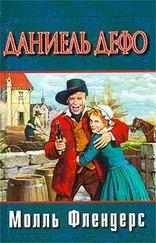Даниэль Дефо - History of the Plague in London
Здесь есть возможность читать онлайн «Даниэль Дефо - History of the Plague in London» весь текст электронной книги совершенно бесплатно (целиком полную версию без сокращений). В некоторых случаях можно слушать аудио, скачать через торрент в формате fb2 и присутствует краткое содержание. Год выпуска: 2014, Издательство: epubBooks Classics, Жанр: Историческая проза, на английском языке. Описание произведения, (предисловие) а так же отзывы посетителей доступны на портале библиотеки ЛибКат.
- Название:History of the Plague in London
- Автор:
- Издательство:epubBooks Classics
- Жанр:
- Год:2014
- ISBN:нет данных
- Рейтинг книги:4 / 5. Голосов: 1
-
Избранное:Добавить в избранное
- Отзывы:
-
Ваша оценка:
- 80
- 1
- 2
- 3
- 4
- 5
History of the Plague in London: краткое содержание, описание и аннотация
Предлагаем к чтению аннотацию, описание, краткое содержание или предисловие (зависит от того, что написал сам автор книги «History of the Plague in London»). Если вы не нашли необходимую информацию о книге — напишите в комментариях, мы постараемся отыскать её.
History of the Plague in London — читать онлайн бесплатно полную книгу (весь текст) целиком
Ниже представлен текст книги, разбитый по страницам. Система сохранения места последней прочитанной страницы, позволяет с удобством читать онлайн бесплатно книгу «History of the Plague in London», без необходимости каждый раз заново искать на чём Вы остановились. Поставьте закладку, и сможете в любой момент перейти на страницу, на которой закончили чтение.
Интервал:
Закладка:
Another infected person came and knocked at the door of a citizen's house where they knew him very well. The servant let him in, and, being told the master of the house was above, he ran up, and came into the room to them as the whole family were at supper. They began to rise up a little surprised, not knowing what the matter was; but he bid them sit still, he only come to take his leave of them. They asked him, "Why, Mr. ―, where are you going?"—"Going?" says he; "I have got the sickness, and shall die to–morrow night." It is easy to believe, though not to describe, the consternation they were all in. The women and the man's daughters, which [239] "Which," as applied to persons, is a good Old English idiom, and was in common use as late as 1711 (see Spectator No. 78; and Matt. vi. 9, version of 1611).
were but little girls, were frightened almost to death, and got up, one running out at one door and one at another, some downstairs and some upstairs, and, getting together as well as they could, locked themselves into their chambers, and screamed out at the windows for help, as if they had been frightened out of their wits. The master, more composed than they, though both frightened and provoked, was going to lay hands on him and throw him downstairs, being in a passion; but then, considering a little the condition of the man and the danger of touching him, horror seized his mind, and he stood still like one astonished. The poor distempered man, all this while, being as well diseased in his brain as in his body, stood still like one amazed. At length he turns round. "Ay!" says he with all the seeming calmness imaginable, "is it so with you all? Are you all disturbed at me? Why, then, I'll e'en go home and die there." And so he goes immediately downstairs. The servant that had let him in goes down after him with a candle, but was afraid to go past him and open the door; so he stood on the stairs to see what he would do. The man went and opened the door, and went out and flung [240] Flung to.
the door after him. It was some while before the family recovered the fright; but, as no ill consequence attended, they have had occasion since to speak of it, you may be sure, with great satisfaction. Though the man was gone, it was some time, nay, as I heard, some days, before they recovered themselves of the hurry they were in; nor did they go up and down the house with any assurance till they had burned a great variety of fumes and perfumes in all the rooms, and made a great many smokes of pitch, of gunpowder, and of sulphur. All separately shifted, [241] Changed their garments.
and washed their clothes, and the like. As to the poor man, whether he lived or died, I do not remember.
It is most certain, that if, by the shutting up of houses, the sick had not been confined, multitudes, who in the height of their fever were delirious and distracted, would have been continually running up and down the streets; and even as it was, a very great number did so, and offered all sorts of violence to those they met, even just as a mad dog runs on and bites at every one he meets. Nor can I doubt but that, should one of those infected diseased creatures have bitten any man or woman while the frenzy of the distemper was upon them, they (I mean the person so wounded) would as certainly have been incurably infected as one that was sick before and had the tokens upon him.
I heard of one infected creature, who, running out of his bed in his shirt, in the anguish and agony of his swellings (of which he had three upon him), got his shoes on, and went to put on his coat; but the nurse resisting, and snatching the coat from him, he threw her down, run over her, ran downstairs and into the street directly to the Thames, in his shirt, the nurse running after him, and calling to the watch to stop him. But the watchman, frightened at the man, and afraid to touch him, let him go on; upon which he ran down to the Still–Yard Stairs, threw away his shirt, and plunged into the Thames, and, being a good swimmer, swam quite over the river; and the tide being "coming in," as they call it (that is, running westward), he reached the land not till he came about the Falcon Stairs, where, landing and finding no people there, it being in the night, he ran about the streets there, naked as he was, for a good while, when, it being by that time high water, he takes the river again, and swam back to the Still Yard, landed, ran up the streets to his own house, knocking at the door, went up the stairs, and into his bed again; and [242] Supply "I heard."
that this terrible experiment cured him of the plague, that is to say, that the violent motion of his arms and legs stretched the parts where the swellings he had upon him were (that is to say, under his arms and in his groin), and caused them to ripen and break; and that the cold of the water abated the fever in his blood.
I have only to add, that I do not relate this, any more than some of the other, as a fact within my own knowledge, so as that I can vouch the truth of them; and especially that of the man being cured by the extravagant adventure, which I confess I do not think very possible, but it may serve to confirm the many desperate things which the distressed people, falling into deliriums and what we call light–headedness, were frequently run upon at that time, and how infinitely more such there would have been if such people had not been confined by the shutting up of houses; and this I take to be the best, if not the only good thing, which was performed by that severe method.
On the other hand, the complaints and the murmurings were very bitter against the thing itself.
It would pierce the hearts of all that came by, to hear the piteous cries of those infected people, who, being thus out of their understandings by the violence of their pain or the heat of their blood, were either shut in, or perhaps tied in their beds and chairs, to prevent their doing themselves hurt, and who would make a dreadful outcry at their being confined, and at their being not permitted to "die at large," as they called it, and as they would have done before.
This running of distempered people about the streets was very dismal, and the magistrates did their utmost to prevent it; but as it was generally in the night, and always sudden, when such attempts were made, the officers could not be at hand to prevent it; and even when they got out in the day, the officers appointed did not care to meddle with them, because, as they were all grievously infected, to be sure, when they were come to that height, so they were more than ordinarily infectious, and it was one of the most dangerous things that could be to touch them. On the other hand, they generally ran on, not knowing what they did, till they dropped down stark dead, or till they had exhausted their spirits so as that they would fall and then die in perhaps half an hour or an hour; and, which was most piteous to hear, they were sure to come to themselves entirely in that half hour or hour, and then to make most grievous and piercing cries and lamentations, in the deep afflicting sense of the condition they were in. There was much of it before the order for shutting up of houses was strictly put into execution; for at first the watchmen were not so rigorous and severe as they were afterwards in the keeping the people in; that is to say, before they were (I mean some of them) severely punished for their neglect, failing in their duty, and letting people who were under their care slip away, or conniving at their going abroad, whether sick or well. But after they saw the officers appointed to examine into their conduct were resolved to have them do their duty, or be punished for the omission, they were more exact, and the people were strictly restrained; which was a thing they took so ill, and bore so impatiently, that their discontents can hardly be described; but there was an absolute necessity for it, that must be confessed, unless some other measures had been timely entered upon, and it was too late for that.
Читать дальшеИнтервал:
Закладка:
Похожие книги на «History of the Plague in London»
Представляем Вашему вниманию похожие книги на «History of the Plague in London» списком для выбора. Мы отобрали схожую по названию и смыслу литературу в надежде предоставить читателям больше вариантов отыскать новые, интересные, ещё непрочитанные произведения.
Обсуждение, отзывы о книге «History of the Plague in London» и просто собственные мнения читателей. Оставьте ваши комментарии, напишите, что Вы думаете о произведении, его смысле или главных героях. Укажите что конкретно понравилось, а что нет, и почему Вы так считаете.












